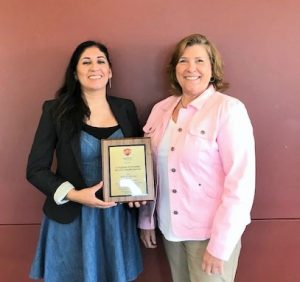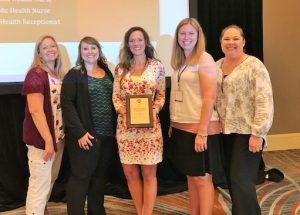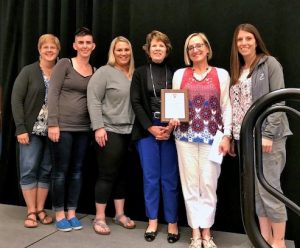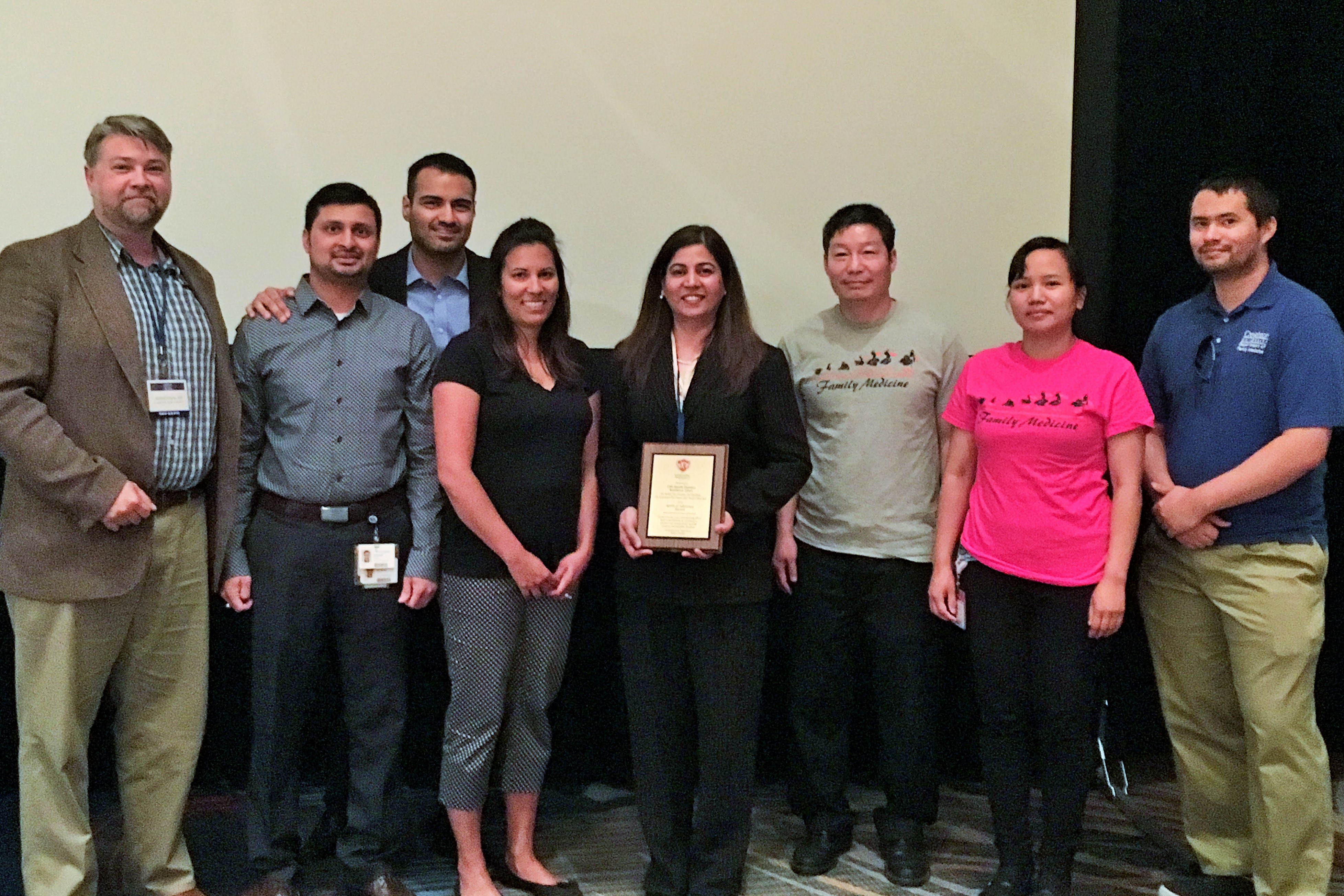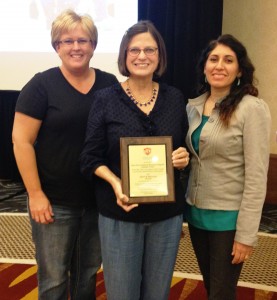The Spirit of Advocacy Award was designed by the Immunization Task Force Metro Omaha to honor and recognize those who have demonstrated exceptional public service and dedication to improving public health through immunization advocacy in their community. Award criteria and nomination information can be found on the nomination form located here. Self-nominations are welcome, or you may submit an application for a deserving individual.
Spirit of Advocacy Award Application
2018 Award Recipient: Creighton University Student Health Services
Creighton University Student Health Services
This university health services group made a conscientious effort to evaluate each student’s HPV vaccine record and offer the vaccine during each visit. Students were provided education, answered questions, and administered vaccine. Subsequent appointments were made to assure the vaccine series was completed. The result of this effort increased the number of HPV doses administered from 140 in 2015 to 321 in 2016 and 422 in 2017. The impact of this simple, consistent and conscientious effort is striking and noteworthy. The program is now standard of care for students to assure students under age 27 are given the opportunity to obtain this potentially life-saving vaccine.
Pictured: Olivia Vargas and Kim Lossi
2017 Award Recipients: West Central District Health Department and Complete Children’s Health P.C
West Central District Health Department
The West Central District Health Department in North Platte, NE has engaged in a number of programs to increase their vaccination rates. The Health Department has developed a Reminder Postcard program that sends postcards to eligible patients across various age groups informing them that they are eligible for a recommended vaccine, as well as providing education surrounding the disease state that the suggested vaccine protects against. They conduct outreach clinics over a six county area bringing a variety of vaccinations as available. They also conduct back-to-school physicals at local schools, where they educate parents on the importance of vaccinations. The Health Department is currently conducting monthly Public Health Clinics and Immunization Clinics throughout their service area. Finally, they diligently screen for and provide all recommended vaccines during patient visits and schedule all follow-ups to complete series. As a result of implementing all of these programs, immunization rates across all age groups in the Health Department’s service area has improved significantly.
Pictured: Tamara Fischer, Sally Brecks, Shannon Vanderheiden, Brandi Lemon, Shelly Enyeart
Complete Children’s Health
Complete Children’s Health P.C has successfully improved vaccination rates among their adolescent population. There were many strategies utilized in order to improve these rates. They provided education to physicians and nurses about importance of the vaccinations including proven patient education methods to use with patients. To improve compliance with appointments the scheduled appointments for all subsequent doses at the time of the first dose, provided magnet reminders, utilized text message reminders and automated phone reminders for nurse visits and called missed appointments. In addition, they posted patient education in exam rooms, and had material ready to provide to hesitant families. They have measured rates before and after implementing these strategies to assess results. They found they have improved the rate of completed series in 13-17 year old’s from 58.68% in December 2015 to 71.07% in December 2016.
Pictured: Sarah R, Amber C, Leah Z, Sharon Wade (ITF Chair), Mary W, and Charity M
2016 Award Recipients: CHI Health Florence Residency Clinic
Entire clinic team with immunization project lead by Dr. Rafiq, Dr. Greene, Dr. Mullick, Dr. Guzman, Dr. Desai and Tanya Howard
This group of physicians, residents, medical assistants, nurses and interpreters have identified HPV and pneumococcal as vaccines with low national and local completion rates and implemented many strategies to increase rates in their populations. As a strong team they addressed the HPV and pneumococcal vaccine, as well as vaccines for their pregnant patients. They set clear rules for vaccine communication, reinforced stressing the vaccines at clinic huddles held twice daily, sent reminder vaccination letters to patients in their native languages, and completed pre-visiting planning and screening for all patient visits including sick and well visits. The plan was implemented in August of 2015 and rates of vaccination as of March 2016 showed dramatic improvement increasing vaccination rates for HPV from 15% to 77% of patients and pneumococcal from 14% to over 70% of patients.
Pictured: Dr. Greene, Dr. Guzman, Dr. Mullick, Tanya Howard, Dr. Rafiq, Jonathan Bakyaw, Sui Za Len, and Dr. Guzman
2015 Award Recipients: Boys Town National Research Hospital Pediatric Clinic
Anne Mai, Deb Cunningham, Olivia Cargas, Carol Schaal, Betsy Becker and Allie Jepsen (nurse tech)
This group of nurses has identified HPV as a vaccine with low national completion rates and implemented many strategies to increase rates in their populations. They checked NESIIS and IRIS for each patient and entered standing orders for vaccine completion into EHR charts and called all parents/guardians of the patients to make appropriate appointments. This drove their completion rates for their patients up to 62% as of December 2014 and will continue to work on this quality improvement project which was nurse driven in 2015.
Pictured: Deb Cunningham, Anne Mai and Olivia Vargas

